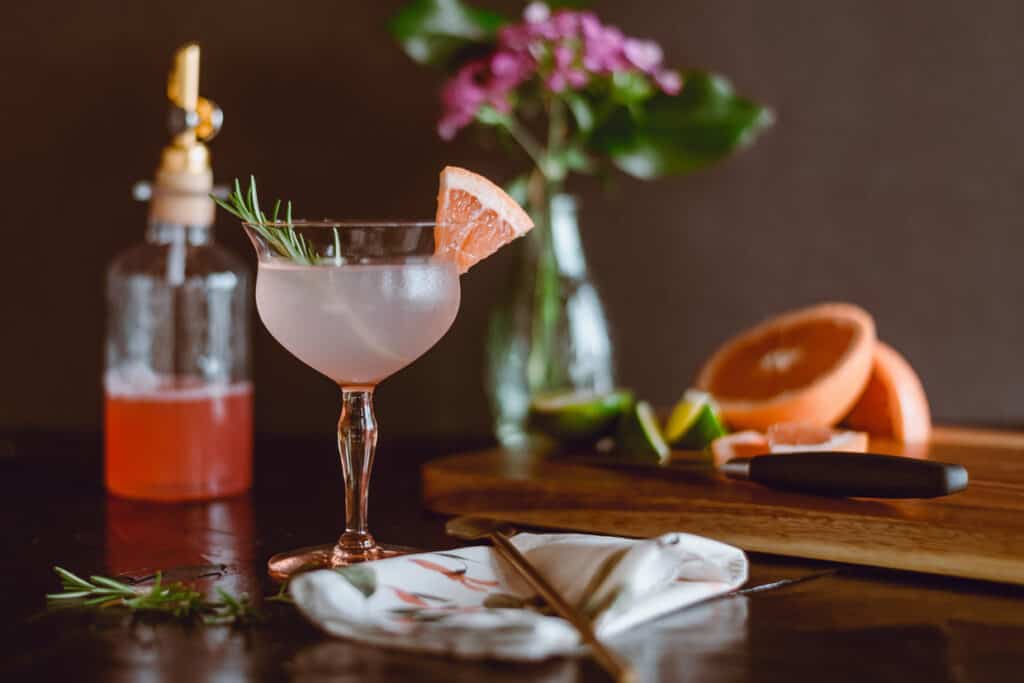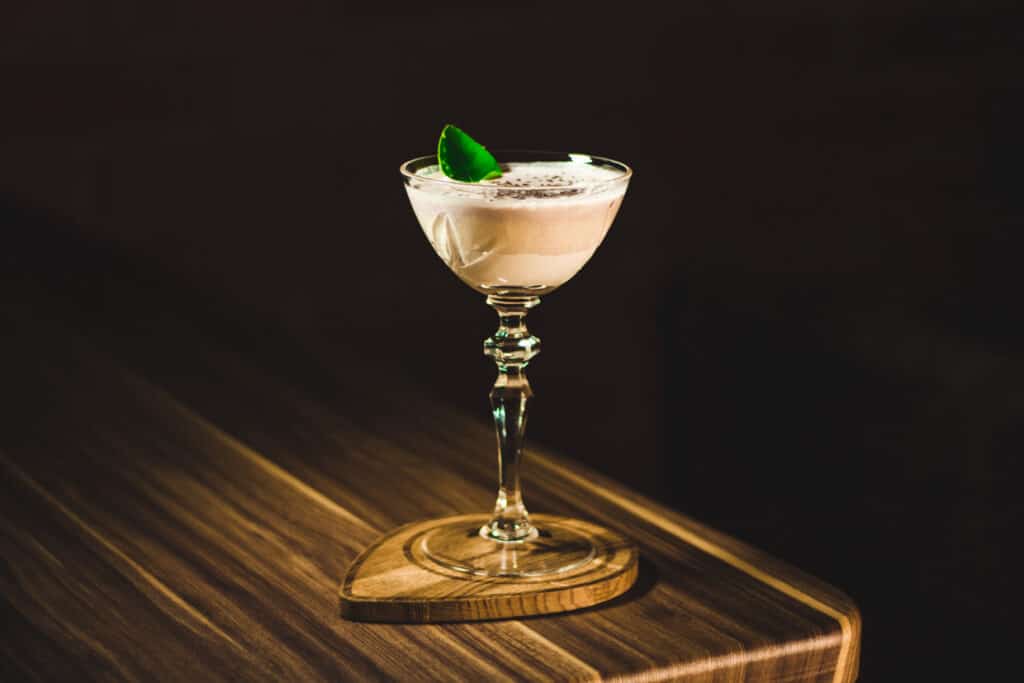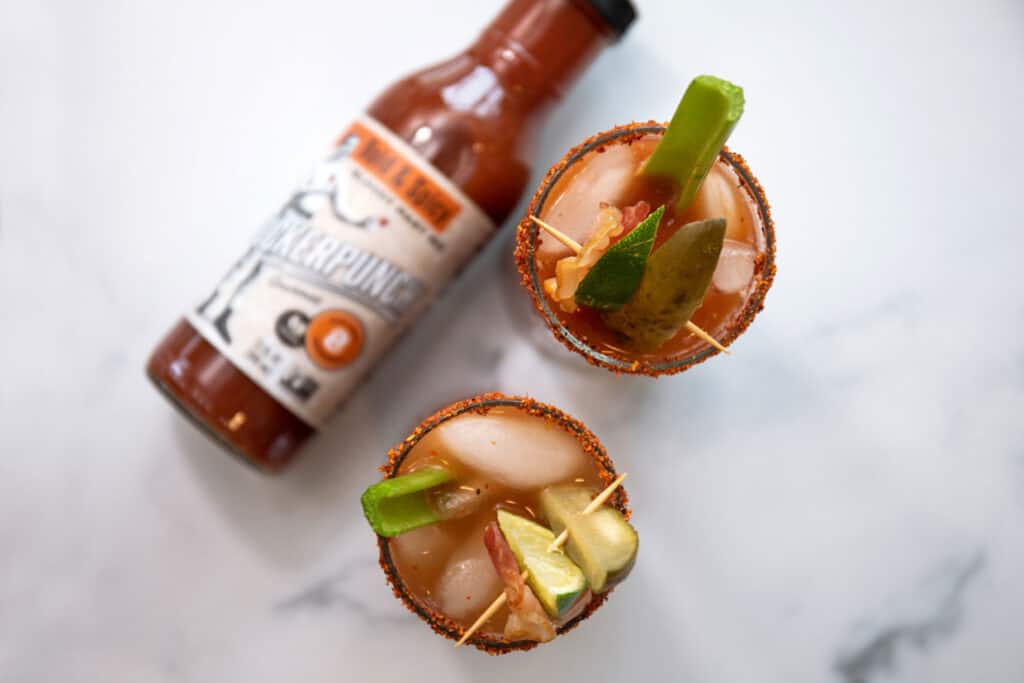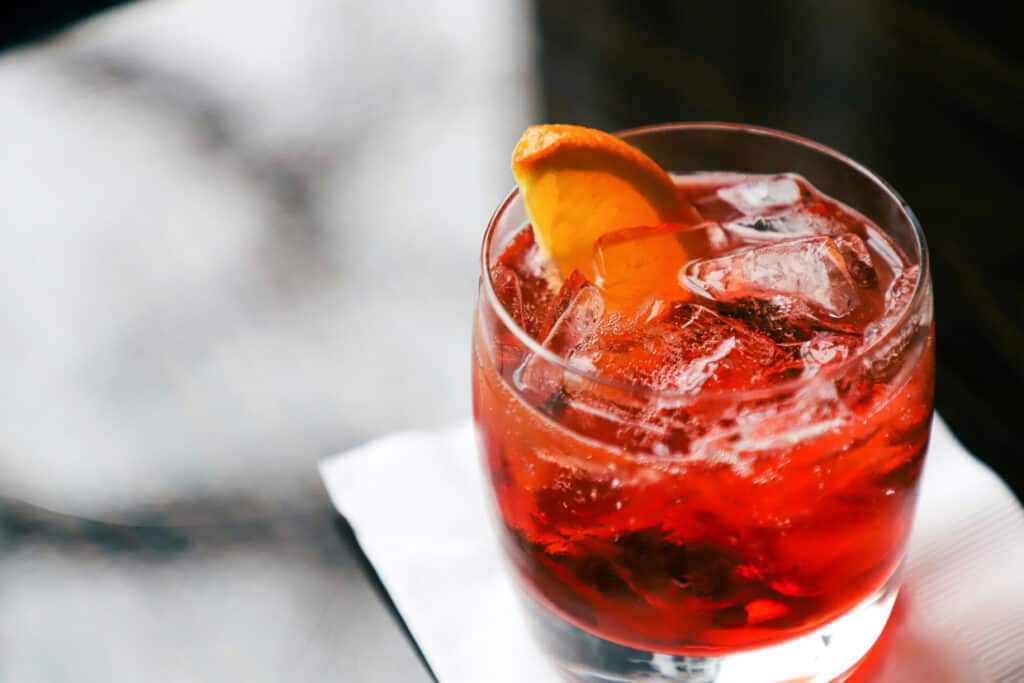From creative cocktails to refreshing mocktails, vegan drinks offer a taste of delicious, sustainable refreshment. Discover the secret ingredients that can sour plant-based cocktail recipes.

Your guide to vegan drinks
Whether you’re ordering at a restaurant or mixing up drinks at home, delving into the world of vegan drinks means making conscious choices without compromising flavor. While most cocktails are vegan, there’s nothing worse than a surprise ingredient shaking its way into your drink.
As you explore vegan concoctions, it’s crucial to steer clear of classic cocktail ingredients typically laden with animal products, such as dairy, honey and egg whites. Instead, opt for creative alternatives and substitutes that uphold vegan principles while still delivering exceptional flavor.
This guide walks you through the ingredients to avoid and alternatives that won’t miss the mark. These substitutes are worth stocking in your home bar for your at-home cocktails and mocktails. And when you’re out and about, keep an eye out for these hidden ingredients on the drink menu.
Spirits for vegan drinks
Wondering if alcohol is vegan? It depends. The main types of spirits used in cocktails are all plant-based, so they are a safe bet for vegan alcohol.
Whiskey and beer are made from distilled grains. Vodka and gin come from starches like grains or potatoes. Brandy, wine and champagne come from fruits, rum from sugar cane and tequila and mezcal are made from the agave plant.
In general, those will cover the bases for many cocktails. That said, there are exceptions like cream-based liqueur, mezcal with worms and apéritifs colored with insect-based dyes, so it’s important to research any ingredients you’re not sure of.

Common non-vegan cocktail ingredients
Non-vegan ingredients can be added to syrups, spirits and mixers, so always check labels carefully. However, in the United States, alcohol companies are not required to list all of the ingredients on the label, so it’s best to check the manufacturer’s website or a resource like Barnivore before imbibing.
Dairy
Cocktails with dairy, such as the white Russian and the Brandy Alexander drink, are common on after-dinner drink menus. Dessert cocktails often incorporate heavy cream, half-and-half, milk and ice cream.
These can easily be replaced with plant-based alternatives. In place of milk, try almond milk, oat milk, cashew milk or soy milk.
“To make my cocktails vegan, I use unsweetened cashew milk in place of milk and sometimes cream. The flavor of cashew milk suits most cocktails better than other plant-based milk,” said Erin Dooner of Texanerin.
Coconut cream and cashew milk can better mimic the silkiness of heavy whipping cream, but they can affect flavor. “Canned coconut milk has a strong flavor and, depending on the recipe, may result in unappetizing lumps of coconut cream,” said Dooner.
In high-end cocktail bars, keep an eye out for clarified milk punch. It’s a clear cocktail but, as the name implies, it’s made from cow’s milk. This labor-intensive drink comes together by curdling the solids in the milk with heat, citrus or alcohol, then filtering out the solids.
Additionally, some spirits contain dairy as well. Many brands of Irish cream contain dairy, though almond milk versions have popped up on shelves in recent years.
Eggs
Eggs are another common cocktail ingredient. Some cocktail recipes, like the whiskey sour and Clover Club, call for just egg whites, which become frothy and smooth when shaken.
Other drinks, like flip cocktails and eggnog, can contain whole eggs. The yolk and the white add a thick, silky texture to these beverages.
Sometimes, the egg can be omitted without much change to the recipe, though the texture will be different. Other times, you’ll need to use an egg substitute such as aquafaba for truly vegan cocktails.
“When we have vegan guests, and I want to make a cocktail that has egg white foam, I use aquafaba, the liquid from canned chickpeas. Whip it with some simple syrup for a frothy drink topper.”
— Gen La Rocca, Two Cloves Kitchen

Worcestershire sauce
Some savory cocktails can contain Worcestershire sauce, a bold cooking flavor enhancer that’s usually made from anchovies. Therefore, it’s not considered vegan.
If you’re looking for a similar flavor in your next bloody Mary, try substituting a splash of soy sauce or look for vegan Worcestershire sauce at your local grocery store.
Honey
Sweet cocktails are often made with honey. Made through the work of bees, honey isn’t considered vegan. Try using a plant-based sweetener to make your favorite cocktails, like a maple old-fashioned or an agave whiskey sour.
“If a cocktail recipe calls for honey, I always use maple syrup in its place,” said Dooner. “I use maple syrup in almost all of my cocktail recipes, even when it doesn’t make sense, like in lemon drinks. Unless you’re adding quite a bit, it doesn’t add any maple flavor to the drink.”
Thick and viscous, honey can also be difficult to dissolve into a cocktail. A thinner plant-based alternative like maple syrup, simple syrup or agave nectar can actually work better.
“With maple syrup, there’s no worrying about it dissolving. It also works great in place of granulated sugar and simple syrup, should you be avoiding refined sugar.”
Honey can also be used to sweeten liqueurs. Keep an eye out for cocktails made with honey liqueur or mead.

Red dye
Some types of red dye, specifically carmine dye, aren’t vegan. Made from crushed, tiny insects called cochineal beetles, this red dye is another non-vegan ingredient that can find its way into your cocktail via liqueurs, red vermouth and grenadine syrup.
Until 2006, these beetles were used to make the carmine dye coloring the ruby-hued Campari liqueur, famously used in the Negroni. However, the clarification process does include animal gelatin, so even with a new type of dye, it isn’t considered to be vegan-friendly, according to Barnivore.
Fat-washing
Fat-washing is most common in craft cocktail bars. It’s a flavoring technique that involves mixing a spirit with some type of fat at room temperature. When the mixture is chilled, the fat solidifies and is then strained out.
Common fat wash ingredients include butter, browned butter, bacon fat and duck fat. Even soft cheeses like whipped feta or cream cheese can be used in fat washing.
However, fat-washing can be done with plant-based fats like coconut oil, avocado oil and sesame oil. You can also use nut butter like peanut butter and almond butter. In fact, peanut butter whiskey is a popular flavor.
Gelatin
Gelatin is another animal product that can sneak into drink recipes. Because it is made from animal products like bones, cartilage and skin, gelatin is not considered vegan.
In drinks, its purpose is to add texture. It can also be used in alcohol production for refining and clarifying liquids.
Gelatin shots have been making a comeback in bars in the last few years. Unless made with plant-based gelatin, these jiggly shots would not be fit for a vegan.
There is such a thing as plant-based gelatin, however. It is most often made from agar agar, which is an algae-based product extracted from seaweed. Cornstarch can also add a gelatinous effect.
Based in Charlotte, N.C., Susannah Brinkley Henry is the cocktail content creator behind the blog Feast + West. Her work has been featured in Southern Living, Oprah Daily, Buzzfeed, and more. In 2019, her website was a finalist in the Saveur Blog Awards for Best Entertaining Blog. As a professional graphic designer, photographer, writer, and recipe developer, Susannah helps home bartenders and drink enthusiasts level up their cocktail skills.